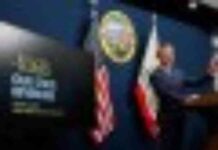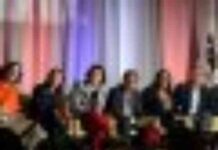A California Appeals Court Ruling: Upholding Rights of All Californians
In a recent ruling by a California appeals court, a Kern County baker faced legal repercussions for refusing to sell a cake to a lesbian couple for their wedding. This case is part of an ongoing legal debate surrounding the intersection of free speech and anti-discrimination laws, with significant implications for business owners and LGBTQ rights.
The backdrop of this ruling is a series of similar cases across the nation that have been shaping the legal landscape. Notably, the U.S. Supreme Court overturned a Colorado ruling in 2018 that found a baker had violated nondiscrimination laws by refusing to bake a cake for a same-sex couple’s wedding. The Supreme Court’s decision was influenced by perceived prejudice against the baker’s religious beliefs by the Colorado civil rights commission handling the case.
Building on this legal precedent, the California appeals court’s recent ruling creates boundaries for business owners’ rights to free expression. This decision holds significant weight in establishing guidelines for how business owners can balance their personal beliefs with anti-discrimination laws.
A Personal Account of the Dispute: The Rodriguez-Del Rio Wedding Cake Incident
At the heart of the California court ruling is the story of Eileen and Mireya Rodriguez-Del Rio, a couple who visited Tastries bakery in Bakersfield to purchase a wedding cake in August 2017. The couple selected a pre-designed plain, white, three-tiered cake typically used for various celebrations. However, when the couple revealed their intention to use the cake for their same-sex wedding, the bakery’s owner, Catharine Miller, refused to sell it to them.
Miller, a devout Christian, cited her religious beliefs about marriage as the basis for her refusal. She explained that her bakery policy dictated that wedding cakes must align with her views on marriage as a sacred union between a man and a woman. This incident sparked a legal battle that ultimately led to the recent California appeals court ruling.
Legal Battle and Implications: The Intersection of Free Speech and Anti-Discrimination Laws
The state’s Civil Rights Division filed a lawsuit against Miller, arguing that her refusal to sell the cake violated California law. Represented by the Becket Fund for Religious Liberty, Miller defended her actions, stating that her policy was rooted in religious beliefs and not discriminatory intent towards LGBTQ individuals.
Initially, a Kern County judge ruled in favor of Miller, stating that her policy applied to all customers and did not violate the state’s Unruh Civil Rights Act. However, the state appealed this decision, leading to the recent ruling by the California appeals court.
In their unanimous decision, the court emphasized that Miller’s policy was not neutral and could only be applied based on customers’ sexual orientation. The judges also highlighted that selling a plain, undecorated cake did not equate to expressing support for a same-sex wedding. This distinction was crucial in determining the boundaries between protected speech and commercial products.
Looking Ahead: Potential Ramifications and Legal Challenges
The outcome of this case sets a precedent for future legal battles surrounding free speech and anti-discrimination laws. Legal experts suggest that this ruling may prompt further appeals, particularly from conservative groups seeking to establish exceptions to anti-discrimination laws regarding services to LGBTQ individuals.
Notably, the California ruling draws a clear line between expressive speech and standard commercial products, providing guidance for future cases that navigate the delicate balance between personal beliefs and legal obligations. As the legal landscape continues to evolve, the implications of this ruling will likely resonate in similar cases across the country.
In conclusion, the recent California appeals court ruling serves as a pivotal moment in the ongoing debate over free speech and anti-discrimination laws. By upholding the rights of all Californians to access goods and services without discrimination, this decision sets a crucial precedent for future legal battles and societal discussions surrounding LGBTQ rights and religious freedoms.





















